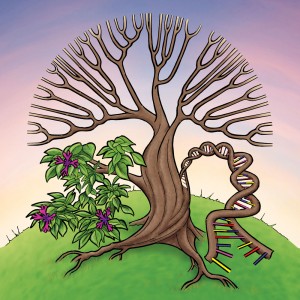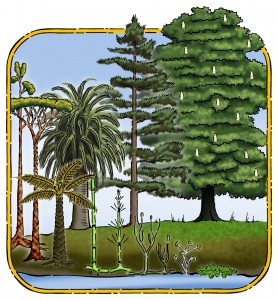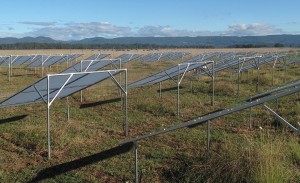- About
- Members
- Join
- Member log in
- Membership Renewal
- Member directory
- Life Members
- ASPS Life Member Professor Graham Farquhar
- ASPS Life Member Associate Professor Hendrik (Hank) Greenway
- ASPS Life Member Dr Marshall (Hal) D Hatch
- ASPS Life Member Dr Paul E Kriedmann
- ASPS Life Member Dr Mervyn Ludlow
- ASPS Life Member Emeritus Professor Rana Munns
- ASPS Life Member Conjoint Professor Christina E Offler
- ASPS Life Member Professor (Charles) Barry Osmond
- ASPS Life Member Emeritus Professor John W Patrick
- ASPS Life Member Dr Joe Wiskich
- Corresponding Members
- Elected Fellows
- Events
- Awards & Funding
- Employment
- Publications
- Research
- Teaching
- Menu
Science meets Parliament 2016 report
09 March 2016
by ASPS student member Hannah Osborn (@han_osb321)
The sixteenth Science meets Parliament was held in Canberra last week, an event where over 200 scientists descend on Parliament House to learn about politics, policymaking and the media. I was fortunate enough to represent the Australian Society of Plant Scientists alongside Professor Yong-Ling Ruan from the University of Newcastle.
This annual event organised by Science and Technology Australia (STA) is a great opportunity for scientists to inform and excite politicians about science and at the same time learn about politics and the policy, media and parliamentary processes.
The event is held over two days the first day is to prepare us for meeting the politician, the second day is actually meeting them. Professor Brian Schmidt was up first offering many pearls of wisdom from his experiences dealing with politicians. Top tips included “Don’t get defensive”, “Don’t whinge or complain about lack of funding” and remember they’re human! We then heard from journalists Paul Bongiorno and Alison Carabine about the role of media in science. This session covered the importance of being engaging and communicating your science in a simple and direct way. The responsibility of the media to provide alternative views was also discussed with the emphasis on issues like climate change and vaccinations. Both journalists agreed that the alternative view should be proportional to the public interest. I believe the media could have more responsibility here in presenting scientific facts over the “conspiracy theories” but it shows how important it is to clearly and simply communicate your science for the public to make an informed decision.
Following this Catriona Jackson, CEO of STA chaired the session “Getting into policy: how to use science to shape public policy” with Professor Emily Banks, ANU and Dr Subho Banerjee, Department of Education and Training. This was a really interesting session covering the importance of policymakers and how politicians are actually really interested in science, we’re “pushing on an open door” and we need to make the most of this.
The afternoon session was spent working out what to expect from Science meets Parliament by a panel comprising Dr Jeremy Brownlie, STA, Professor Mark Hutchinson, ARC Centre of Excellence for Nanoscale BioPhotonics, Dr Krystal Evans, BioMelbourne Network and Catriona Jackson, STA. The key message here was to make sure you have a key message when speaking with the politician and to know what you want out of the meeting, which could range from informing the politician of your science to inviting them to visit and see firsthand what goes on within your workplace.
Your science in 60 seconds was the interactive final session of the afternoon where Dr Rod Lamberts and Dr Will Grant both from ANU set a strict time limit for us to tell our science story. In a competitive elimination process where only the best moves forward to win a metaphorical bottle of wine all 200 of us got to practice communicating our science succinctly. Actual wine followed at the Gala dinner that night at Parliament House with Minister Christopher Pyne and Opposition Leader Bill Shorten both speaking about the importance of science and innovation.
The second day of Science meets Parliament involved actually meeting a politician. Personally, my experience was fantastic if not all too brief as the realities of life as a politician became clear. Throughout the rest of the day we were entertained by Q & A sessions with Professor Ian Chubb, former Chief Scientist as he reflected on his experiences in this position and then Senator Kim Carr, Shadow Minister for Higher Education, Research, Innovation and Industry. Senator Carr put into words how I believe a lot of people were feeling that CSIRO is not a glorified consultancy and if we keep going that direction we will undermine its status as our nations research centre completely.
The new Chief Scientist Dr Alan Finkel gave his first address at the National Press Club which I unfortunately missed as my meeting clashed with this event but I did get to attend the reality show also known as Question Time for the House of Representatives.
The day ended with a panel of politicians all passionate about science chaired by Genevieve Jacobs from ABC Canberra with Professor Aidan Byrne, ARC, the Hon Karen Andrews, Assistant Minister for Science, the Hon Richard Marles, Shadow Minister for Immigration and Border Protection and Dr Adam Bandt, Industry, Energy, Science and Research spokesman.
Overall, the take home message from Science meets Parliament 2016 was Professor Graham Durant’s comment “science isn’t finished until it’s communicated” which is something we should all remember and include as an important part of our research.
Further Plants in Action PDF chapters and employment opportunities
28 February 2016
Your current membership is paid to [wpmlfield name=”paidtodate”] (year, month, day).
Dear ASPS members,
A further four PDF chapters of Plants in Action 2nd edition are now available.
There are also new PhD scholarships and Post Doc opportunities available.
Plants in Action 2nd edition PDFs now available
24 February 2016
Your current membership is paid to [wpmlfield name=”paidtodate”] (year, month, day).
Dear ASPS members,
Plants in Action 2nd edition is the on-line text book produced by the Australian and New Zealand societies of plant sciences freely available to users across the world.
Four chapters of Plants in Action 2nd edition are now available as PDF and more will be added over the next few weeks.
These PDFs are meant for use in teaching. Students and researchers are encouraged to use the chapter title web links as material may be updated from time to time.
You can access the Plants in Action 2nd edition PDF page here.
Thanks to Rana Munns for her continuing dedication to this project.
Nominations for the Borlaug Field Award
21 February 2016
Your current membership is paid to [wpmlfield name=”paidtodate”] (year, month, day).
Dear ASPS members,
I want to draw your attention to the Borlaug Field Award. This award will recognize exceptional, science-based achievement in international agriculture and food production by an individual under 40 who has clearly demonstrated intellectual courage, stamina, and determination in the fight to eliminate global hunger and poverty. http://www.worldfoodprize.org/index.cfm?nodeID=39531&audienceID=1
If you think you or a colleague qualifies, please let me know so that we can assist with the nomination. We have until the end of June.
Sincerely
John Evans
Science Meets Parliament, 1-2 March
11 February 2016
Your current membership is paid to [wpmlfield name=”paidtodate”] (year, month, day).
Science Meets Parliament, 1-2 March
Hello members,
Each year we get two spaces in the Science Meets Parliament that is organised by Science Technology Australia, the peak body representing science societies. We need to register by 19 Feb, so if you are interested, please email me urgently John.Evans@anu.edu.au
The society covers the cost of the event for the two participants (travel, accommodation and registration) and more information can be found at
http://scienceandtechnologyaustralia.org.au/ You will learn about journalism, who to get a message across and get to meet a politician.
thanks
John Evans
38th New Phytologist Symposium: Colonization of the terrestrial environment 2016
20 January 2016
38th New Phytologist Symposium:
Colonization of the terrestrial environment 2016
25-27 July 2016, Bristol, UK
Travel grant submission deadline: Thursday 21st April 2016
Poster abstract submission deadline: Thursday 19th May 2016
The purpose of this symposium is to explore the contribution that plants and mycorrhizal fungi made to the colonization of the terrestrial environment. Building on the success of the 25th New Phytologist Symposium, the focus will be on exploring current uncertainties in four major themes:
1) Interrelationships;
2) Anatomy – developmental genetics;
3) Refining biogeochemical models to take account of the role of plants and fungi; and
4) Anatomy and physiology of early land plants – what can we learn from extant species?
The meeting will take place over three days in Bristol, UK. There will be a number of invited and selected talks (chosen from submitted poster abstracts). There will also be dedicated time for a poster session and conference dinner.
Keynote speakers:
Liam Dolan, University of Oxford, UK; Ned Friedman, Harvard University, USA; Tim Lenton, University of Exeter, UK
37th New Phytologist Symposium: Plant developmental evolution
20 January 2016
37th New Phytologist Symposium:
Plant developmental evolution

Beijing, China
Travel grant submission deadline: Thursday 25th February 2016
Poster abstract submission deadline: Thursday 17th March 2016
The relatively new field of plant evolutionary-developmental biology (‘evo-devo’) seeks to understand how and why plant morphological characters have evolved to produce the tremendous diversity of form in living plants. This meeting will draw together researchers in plant evo-devo for exchange of ideas, current research, and discussion of future directions for the field.
Sessions:
floral development; vegetative meristems, leaves, and inflorescences; plasticity and life history evo-devo; selected poster abstract talks.
Eighteen leading scientists will speak at the Symposium. We hope that this will stimulate focused discussion and the exchange of ideas at what will be a relatively small (around 120 delegates) and informal meeting. There will be a poster session, selected talks, discussion and a conference dinner.
Keynote speakers:
Beverley Glover, University of Cambridge, UK; Mark Rausher Duke University, USA; Miltos Tsiantis, Max Planck Institute for Plant Breeding Research, Germany.
Ninth Australian Conference on Grassland Invertebrate Ecology
15 January 2016
Ninth Australian Conference on Grassland Invertebrate Ecology
4-7 April 2016, Western Sydney University, Australia
The conference focuses on the biology, ecology and management of both pest and beneficial invertebrates in native and introduced grasslands including pastures, pasture/crop rotations and turf.
The Conference (grassbugs.com.au) will be hosted by the Hawkesbury Institute for the Environment at the historic Hawkesbury campus of Western Sydney University. The campus is nestled at the foot of the Blue Mountains and has been a hub of agricultural research and training since 1891. Grassland research, in particular, has featured prominently at the site with modern Australian grasses first used and developed on the Hawkesbury campus in the 1920s. The Conference will be held over three days including a half day field trip to the Royal Botanic Gardens in the Blue Mountains.
Report from Dr Samantha Grover, Plant Nutrition Trust Award recipient 2015
08 January 2016
5th International Symposium on Soil Organic Matter, Göttingen, Germany, September 20-25th
A whole week of soil organic matter! While many Europeans commented that it was a long way to come for a conference, the nine Australians lucky enough to attend SOM2015 all agreed that we found it thoroughly worthwhile. On the pre-conference field trip, Brian Wilson, Samantha Grover and a dozen other scientists visited peatlands under a range of agricultural uses and had fun flitting back and forth across the former border between East and West Germany. Schnapps tasting at a former convent ended the day but set the scene for the conference proper, which featured different local beers during the poster sessions every evening. Lynne Macdonald, Mark Farrell, Gaelle Ng, Tom Baker, BP Singh, Bhawana Bhatta and Jessica Ernakovich joined Brian Wilson and Samantha Grover to present a wide range of the SOM research from Australia. Outputs from the National Soil Carbon Program were abundant. The Australian contingent joined delegates from more than 50 countries, who presented 161 talks over four days, selected from more than 600 submitted abstracts. The bar was set high, with opening keynote addresses from Rattan Lal and Johan Six. All agreed that this high standard was maintained and the coffee (and beer) breaks were abuzz with animated conversation. Dr Grover’s talk on the effects of lime on the mineralisation of soil organic matter attracted considerable interest and connections were established with two authorities in this area. Ongoing research on peat soils was also strengthened by the first face-to-face meeting between Samantha Grover and Anna Normand, a PhD student from the University of Florida whom Dr Grover co-supervises. The next conference baton was passed on to Jennifer Dungait from Rothamstead Research, which will host the 6th SOM symposium in 2017. A post-conference workshop on SOM fractionation will result in a comparative trial of fractionation methods from laboratories around the world, with Lynne Macdonald accepting the trial soils to contribute CSIRO’s methodology to the study.
After the conference Samantha visited Dr Cordula Vogel and Professor Karsten Kalbitz at Dresden Technical University and gave a splendid talk to their Soil Science and Site Ecology group. Potential collaborations were discussed, a joint project proposal drafted and relationships between the two groups were even further strengthened. The valuable contribution from the Plant Nutrition Trust was well acknowledged in all presentations and it helped to attract matching funding from La Trobe University.
Samantha Grover and Brian Wilson with colleagues at a remnant of the fence dividing East and West Germany on the SOM2015 pre-conference field trip.
Developing Crops for the Future workshop in Kiama
15 December 2015
Your membership is [wpmlfield name=”membershiptype”] which is paid to [wpmlfield name=”paidtodate”] (year, month, day).
Dear members,
CSIRO is hosting a workshop focussed on the genetic programs controlling crop growth and development. This workshop will take place in Kiama, 19–21 April 2016, and will bring together international researchers studying developmental genetics of crop plants to discuss how knowledge of developmental biology can be translated to real world impact. ASPS will offer some support for graduate students to attend. Details are provided in the attached flyer or contact Ben Trevaskis (Ben.Trevaskis@csiro.au) for further information and the ASPS web page http://www.asps.org.au/events/developing-crops-for-the-future
Ben Trevaskis
Recent Posts
Tags
Archives
- June 2025
- May 2025
- April 2025
- March 2025
- February 2025
- January 2025
- December 2024
- November 2024
- October 2024
- September 2024
- August 2024
- July 2024
- June 2024
- May 2024
- April 2024
- February 2024
- January 2024
- November 2023
- October 2023
- September 2023
- August 2023
- July 2023
- June 2023
- May 2023
- April 2023
- March 2023
- February 2023
- December 2022
- November 2022
- October 2022
- September 2022
- August 2022
- July 2022
- June 2022
- May 2022
- April 2022
- March 2022
- February 2022
- January 2022
- December 2021
- November 2021
- October 2021
- September 2021
- August 2021
- July 2021
- June 2021
- April 2021
- March 2021
- February 2021
- January 2021
- December 2020
- November 2020
- October 2020
- September 2020
- August 2020
- July 2020
- June 2020
- May 2020
- April 2020
- March 2020
- February 2020
- January 2020
- December 2019
- November 2019
- October 2019
- September 2019
- August 2019
- July 2019
- June 2019
- May 2019
- April 2019
- March 2019
- February 2019
- January 2019
- December 2018
- November 2018
- October 2018
- September 2018
- August 2018
- July 2018
- June 2018
- May 2018
- April 2018
- March 2018
- February 2018
- January 2018
- December 2017
- November 2017
- October 2017
- September 2017
- August 2017
- July 2017
- June 2017
- May 2017
- April 2017
- March 2017
- February 2017
- January 2017
- December 2016
- November 2016
- October 2016
- September 2016
- August 2016
- July 2016
- June 2016
- May 2016
- April 2016
- March 2016
- February 2016
- January 2016
- December 2015
- November 2015
- October 2015
- September 2015
- August 2015
- July 2015
- June 2015
- May 2015
- April 2015
- March 2015
- February 2015
- January 2015
- December 2014
- November 2014
- October 2014
- September 2014
- August 2014
- July 2014
- June 2014
Copyright 2017 Australian Society of Plant Scientists Disclaimer & Privacy
Website by Michael Major Media


